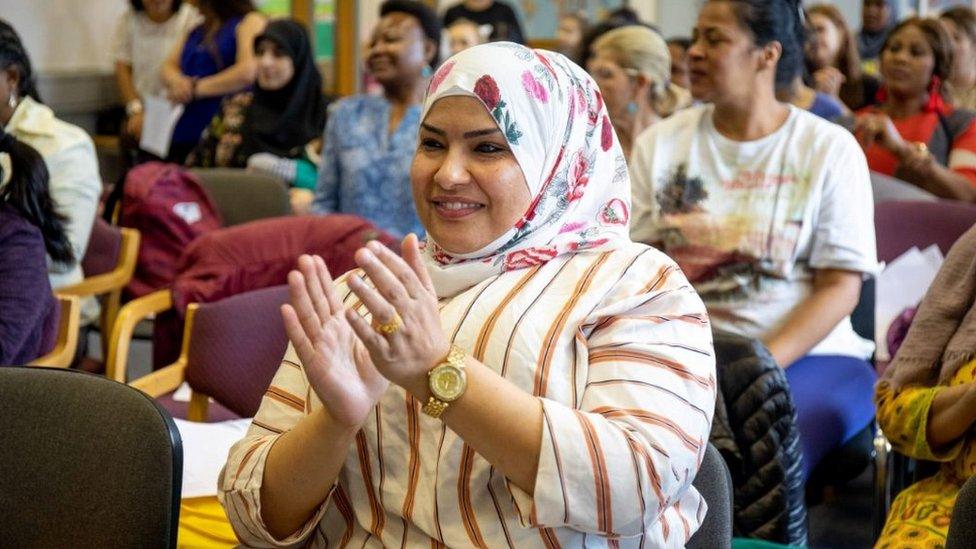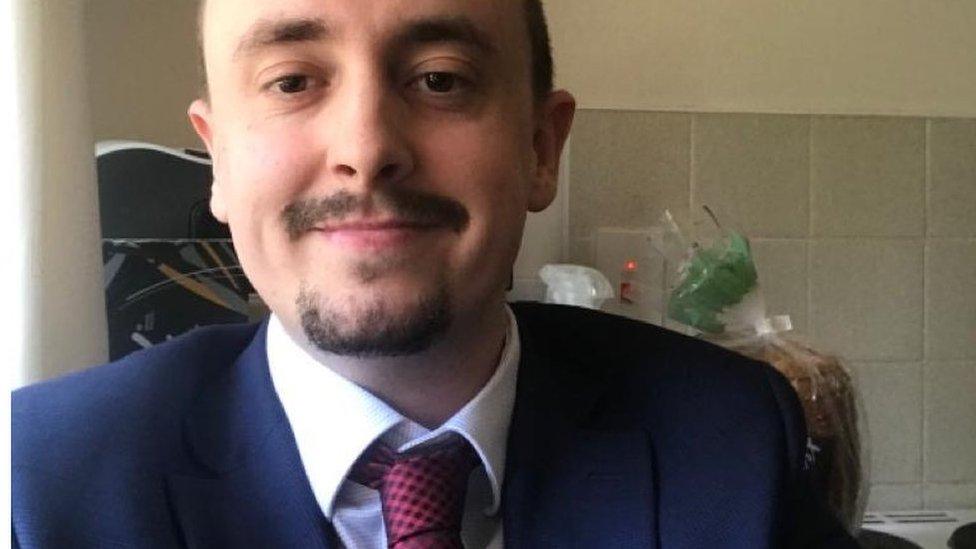Coronavirus: Call to help vulnerable women during pandemic
- Published

The Baytree Centre helps mentor women
A charity has appealed for volunteers to help vulnerable women practise speaking English over the phone during the Covid-19 pandemic.
The Baytree Centre has offered support to women and their families remotely after suspending face-to-face services at its centre in Brixton, south London.
About 150 volunteers help the charity run its services with about 20 making phone calls for its English helpline.
It hoped remote working would mean people outside London could volunteer.
Social mobility coach Javeria Khalid said the system of people offering time to speak to the women on the phone and help them practise a second language was "working wonderfully".
"One of the biggest issues with the pandemic has been isolation," she said. "A lot of the women we work with a vulnerable and very isolated.
"Having a phone call once or twice a week is extremely helpful. Sometimes it's to mentor, but sometimes it's to act like a friend."
Ms Khalid said one woman who was having to self-isolate after being diagnosed with coronavirus had told the charity the calls were "really helping her and providing a distraction in a distressing time".
'Not alone'
Mentoring sessions at the centre aim to empower women and, as well as teaching English, support them with family stability, financial management and employability.
Lizzie, who has been a mentor for almost a year, said it was important the service carried on even if it was remotely.
"Given that English is a second language, it can be very stressful to not know what is going on around you and what is in the news. We can help them to better understand.
"I think it is vital to continue mentoring remotely. It's to show our mentees that they are not alone. The pandemic has generated a lot of fear and anxiety so it is important that we let them express their feelings," she said.

A SIMPLE GUIDE: How do I protect myself?
AVOIDING CONTACT: The rules on self-isolation and exercise
LOOK-UP TOOL: Check cases in your area
MAPS AND CHARTS: Visual guide to the outbreak
VIDEO: The 20-second hand wash

Angela, who has been a beneficiary of the services offered by the Baytree Centre for two years, described staff at the charity as "very kind".
She has been continuing with English for Speakers of Other Languages classes while isolating at home. She said the remote mentoring has helped her learn a second language and also improved her general welfare.
"It is very supportive. I thank them very much indeed," she said.
You can hear more on this story on The Self-Isolation Podcast, available on BBC Sounds.
- Published30 March 2020
